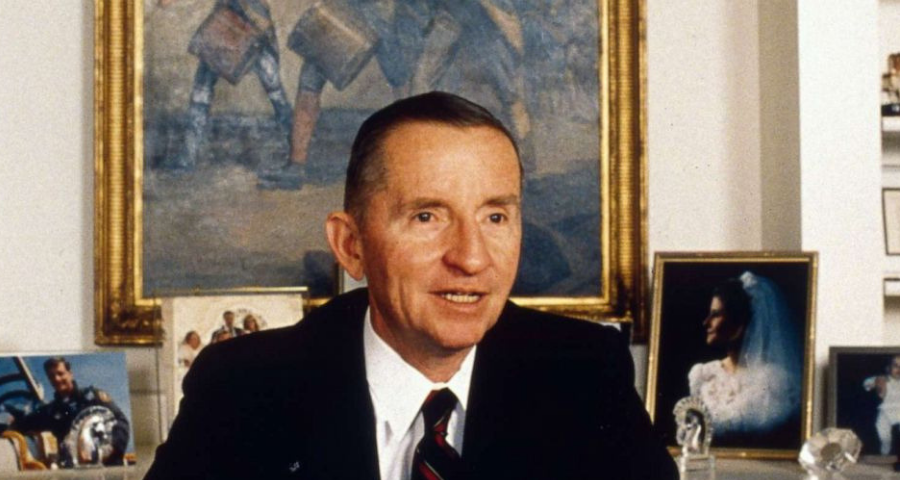When Ross Perot hired me to be his personal assistant in 1984, he didn’t know I was a magician, but he found out at the office Christmas party when I did a little show for everyone.
Afterward, he came up to me and said, “Andy, that’s pretty good how you do those magic tricks. From now on, whenever you do a business presentation, I want you to use magic in it.”
A few months later, he asked me to make a presentation to the General Motors board of directors, using magic to make my point.
This was before the internet, laptops, and email, but we did have mainframe computer systems with electronic mail that was used for internal communications. Ross’s company, EDS, had been purchased by General Motors and each company had its own email system. I was supposed to convince the board that they needed to invest millions of dollars to create one electronic communication system.
I remember walking into GM’s boardroom, a round room with an enormous round table in the middle. I was 23 years old.
When I was introduced, I stood up and showed the group a copy of the Detroit Free Press by paging through it. Then I began talking about the chaos caused by our two disparate electronic communication systems.
I told three stories of how the issue was causing problems, and as I told each story, I tore the newspaper with an accompanying statement, “It’s tearing us apart.”
While I was doing this, I glanced around the huge round table. The body language was awful. Half the people had their arms crossed across their chests, with scowls on their faces. One guy was staring at the ground, shaking his head. One guy was tipped back in his chair, laughing, but I was sure he was saying to himself, “This is great, this kid is going to crash and burn.”
Then came the moment of magic, when I said, “You need to choose one platform and invest the money to pull us all back together,” and with that, I gave the mess of torn newspaper a little flip and the newspaper unfolded, restored, right in front of their eyes.
Pandemonium. Laughing. Pounding the table. One guy jumped to his feet, knocking his chair over.
I looked back at Ross. He was sitting there with a big grin, nodding at me.
That day changed my life. I’ve been using magic in business presentations for 35 years, and I’ve gotten pretty good at it if I do say so myself.
Ross cared about me. He saw my talent and found a way for me to use it in a unique way.
I think about Ross all the time, and about the impact he had on my life – not just my career, but my life. This story is only one example of dozens of ways he showed that he cared.
One other quick one – I was in a serious motorcycle accident on an April Sunday in northern Michigan. Ross flew all the way from Dallas to stand by my hospital bed to tell me three things:
- If you feel you’re not getting the kind of care you need, let me know, and I will make sure you get it.
- Take as much time as you need to heal fully. Do not rush it.
- You will continue to be paid for as long as it takes you to heal.
He was there about 30 minutes and then turned around and flew back to Dallas – on a Sunday.
Ross cared about people.
Over the years, and particularly in the last few days, I’ve heard story after story of things Ross did to care for people. Some of them are huge – like his personally subsidized trips to Vietnam in the late ’60s to deliver aid to prisoners of war. Some of them small – like my stories.
But he never publicized these actions. He never sought glory. He just simply cared. It was the way he was raised, and it was in his bones.
Everybody seems to have their own definition of leadership. To me, it’s what Ross did. He cared. My life was set on a trajectory I could never have imagined if it weren’t for him. My life has been so fulfilling and rich because he simply paid attention to me and took action to help me become who I am supposed to be.
I know he didn’t do this because he wanted to make me a better employee. He did it because he believed in the goodness of people and because he wanted me to live a good life. This is a form of leadership that makes most business leadership pale in comparison.
He represents what leadership can be and what leaders should aspire to be. Good people, helping people be good.

